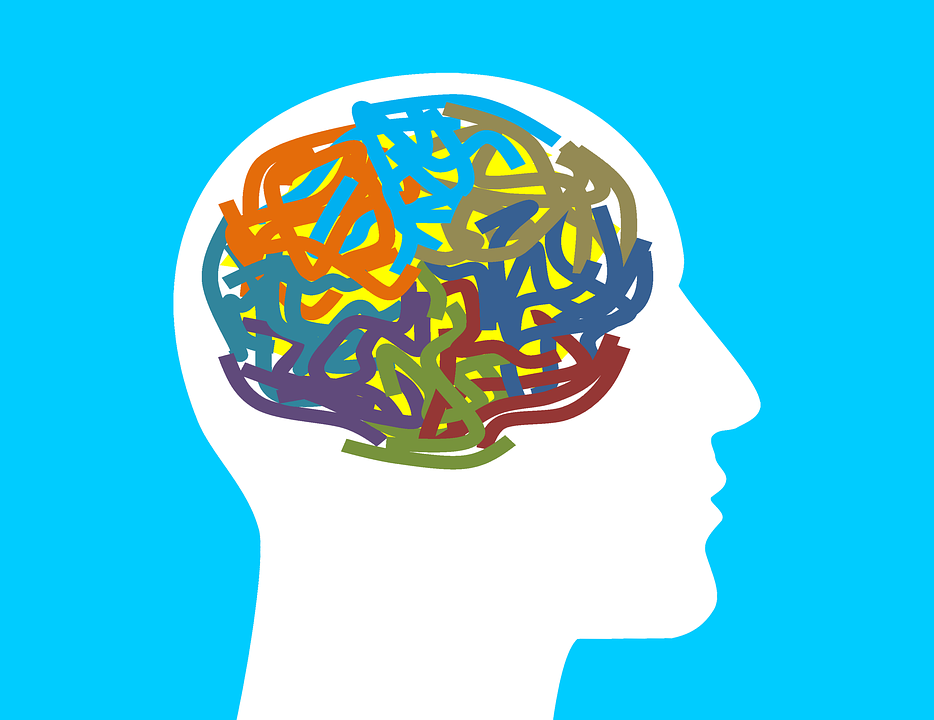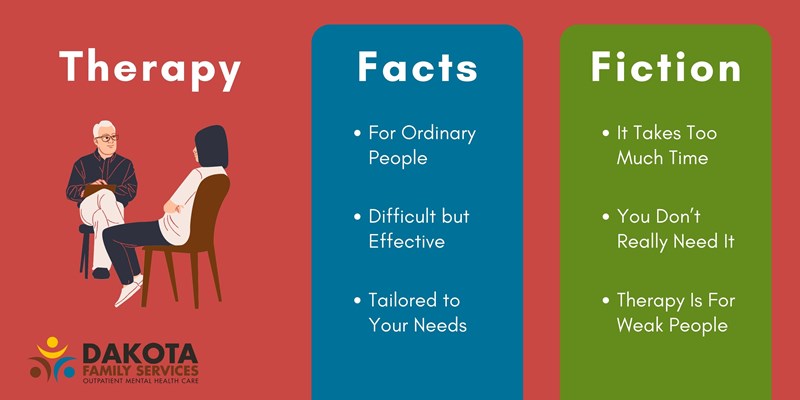Unlocking the Keys of Mental Wellness: A Review of Therapy and Therapy Alternatives
Psychological wellness is a complex and crucial facet of total well-being. Numerous counseling and therapy choices exist to address various psychological obstacles. Each approach uses unique benefits and methods tailored to individual needs. Recognizing these options is vital for anyone seeking to boost their psychological health. Mental Health Resources. What elements should one take into consideration when checking out these methods? The answer may disclose a path to a much healthier emotion
Understanding Mental Wellness and Its Relevance
Psychological wellness encompasses the emotional, emotional, and social well-being of individuals, substantially affecting how they assume, feel, and act. Its significance can not be overstated, as it influences every aspect of life, consisting of partnerships, work performance, and overall high quality of life. People with good mental health often tend to handle tension more effectively, preserve much healthier relationships, and make educated choices. Alternatively, bad psychological health can bring about psychological distress, impaired functioning, and numerous mental illness, which may call for expert treatment. Recognizing psychological wellness is essential for identifying the signs of distress and the need for assistance. Awareness additionally promotes compassion and reduces preconception, motivating people to look for help when necessary. By focusing on mental health, neighborhoods can foster settings that support emotional well-being, inevitably bring about much healthier, much more resistant individuals. This structure functions as an essential step towards reliable mental health and wellness therapy and treatment choices.
Sorts Of Therapy Techniques
Therapy strategies differ extensively, each customized to meet the one-of-a-kind needs of individuals seeking support. Amongst one of the most common types are cognitive-behavioral treatment (CBT), which concentrates on identifying and altering unfavorable thought patterns, and person-centered therapy, which stresses compassion and approval. Psychodynamic treatment checks out subconscious procedures and previous experiences to recognize present habits, while solution-focused short therapy intends to determine solutions as opposed to investigate problems.Additionally, family treatment addresses relational characteristics and interaction within family members, fostering healthier interactions. Group therapy gives a public room for participants to share experiences and support each other. Various other strategies consist of existential treatment, which encourages individuals to locate significance and function, and art or music treatment, which makes use of imaginative expression as a healing device. Each strategy supplies distinctive techniques and viewpoints, permitting customers to locate the most appropriate method for their individual development and recovery journeys.
Checking Out Various Treatment Modalities
In the domain name of psychological health and wellness counseling, numerous treatment modalities use unique strategies to treatment. Cognitive Behavior Treatment stresses the link between actions and thoughts, while Psychodynamic Therapy explores subconscious impacts on psychological well-being. In Addition, Mindfulness-Based Methods promote present-moment awareness as a way to improve emotional regulation and overall mental health and wellness.
Cognitive Behavior Treatment
Cognitive Behavior Treatment (CBT) stands out as one of the most extensively practiced and researched techniques in mental wellness therapy. This method concentrates on the interconnection between feelings, actions, and thoughts, highlighting that modifying unfavorable thought patterns can result in enhanced psychological health and behavioral changes. CBT is structured, normally including a limited number of sessions, and intends to equip people with useful skills to handle their signs and symptoms. It works for a variety of conditions, consisting of stress and anxiety conditions, clinical depression, and trauma. By using strategies such as cognitive restructuring and exposure treatment, CBT fosters resilience and empowers clients to confront difficulties head-on, making it a useful alternative in the landscape of mental health and wellness treatments.
Psychodynamic Treatment Techniques
Psychodynamic therapy strategies supply a deep exploration of the subconscious mind and its influence on behavior and psychological health. Rooted in Freudian concept, these approaches emphasize the relevance of very early youth experiences and subconscious conflicts. With methods such as complimentary organization, desire evaluation, and transfer, people acquire understanding into their feelings and thoughts, fostering self-awareness and understanding. This healing technique motivates clients to discover repressed feelings and unsettled concerns, which can be essential in resolving present mental challenges. By checking out the interaction between previous experiences and existing behaviors, psychodynamic treatment aims to promote psychological recovery and individual growth. Ultimately, it gives a structure for individuals to explore complicated internal characteristics that affect their mental wellness.

Mindfulness-Based Techniques
While typical treatments frequently concentrate on previous experiences, mindfulness-based strategies focus on present-moment recognition as a pathway to emotional well-being. These techniques, consisting of mindfulness-based cognitive treatment (MBCT) and mindfulness-based stress reduction (MBSR), urge people to engage totally with their ideas and sensations without judgment. Practitioners learn to observe their mindsets, promoting a better understanding of emotional triggers and feedbacks. This technique not only reduces signs and symptoms of stress and anxiety and clinical depression however also boosts overall psychological durability. By integrating mindfulness exercises, such as meditation and deep breathing, customers grow a sense of tranquility and quality. Inevitably, mindfulness-based strategies equip people to browse life's difficulties with raised awareness and acceptance, promoting a healthier relationship with their ideas and emotions.
The Function of a Therapist or Therapist
A skilled specialist or therapist plays a necessary role in sustaining individuals via their psychological wellness trips. They supply a safe, non-judgmental space where customers can share their thoughts and sensations honestly. Mental Health Resources. By utilizing various therapeutic strategies tailored to each person's demands, therapists assist customers check out underlying problems that may add to their psychological health challenges.Therapists offer guidance and tools to handle tension, stress and anxiety, depression, and various other psychological difficulties. Their training furnishes them to identify patterns in habits and assumed procedures, promoting insights that result in individual development. They also promote a solid therapeutic partnership, which is important for successful outcomes.Moreover, specialists continue to be go to my blog committed to privacy and ethical requirements, ensuring a trusting atmosphere. Ultimately, the duty of a therapist or therapist is to equip people, encouraging them to establish durability and healthier coping methods while guiding through life's intricacies
How to Pick the Right Therapy or Therapy Alternative
Choosing the best counseling or treatment option starts with reviewing individual requirements. It is vital to understand individual obstacles and objectives prior to checking out different therapy styles. This fundamental step can considerably affect the performance of the chosen strategy.
Evaluate Your Requirements

How can individuals successfully examine their psychological health and wellness needs when assessing counseling or therapy options? First, they ought to review their emotion and identify specific concerns, such as stress and anxiety, connection, or clinical depression obstacles. Journaling can be a useful device for tracking ideas and sensations gradually. Furthermore, people might gain from looking for feedback from trusted pals or member of the family pertaining to perceived modifications in actions or state of mind. It is likewise helpful to assess personal objectives for therapy, such as boosting coping abilities or obtaining understanding into individual patterns. Researching different counseling methods and their viability for details demands can help in making an informed selection. Inevitably, self-awareness plays a crucial duty in choosing the right course for mental health assistance.
Discover Therapy Designs
While passing through the diverse landscape of treatment choices, individuals need to take into consideration various styles of counseling to locate the very best fit for their distinct demands. Cognitive Behavior Therapy (CBT) concentrates on changing unfavorable thought patterns, while Psychodynamic Therapy explores past experiences and subconscious processes. Humanistic techniques stress personal growth and self-actualization, cultivating an encouraging atmosphere. Additionally, mindfulness-based treatments cultivate present-moment awareness, assisting psychological law. For those looking for framework, Solution-Focused Brief Therapy targets particular goals and options. Group treatment offers a public setup for common experiences and support. Ultimately, people should certainly assess their preferences, convenience degrees, and particular difficulties, guaranteeing they choose a therapeutic design that resonates with their individual trip towards psychological well-being.
Getting Rid Of Barriers to Looking For Aid

The Benefits of Therapy and Treatment for Mental Wellness
Seeking aid for mental health difficulties can cause considerable improvements in overall health. Therapy and treatment provide individuals with a safe space to explore their ideas and feelings, fostering self-awareness and individual growth. These professional solutions outfit clients with coping techniques and problem-solving abilities customized to their one-of-a-kind situations.Moreover, treatment can decrease symptoms of anxiety, anxiety, and various other psychological health and wellness disorders, boosting emotional resilience. Routine sessions promote liability and encourage people to set and attain personal goals. Via numerous restorative techniques, such as cognitive-behavioral therapy or mindfulness practices, customers discover to reframe unfavorable thoughts and develop much healthier behaviors.Additionally, the restorative connection itself important link can be a resource of assistance, aiding to deal with seclusion and solitude. In general, taking part in counseling and treatment is an aggressive step toward accomplishing mental health, allowing people to lead even more satisfying lives.
Frequently Asked Inquiries
Exactly How Long Does Therapy or Therapy Normally Last?
The period of therapy or therapy differs significantly, frequently lasting from a couple of sessions to a number of months or years. Variables affecting this include the individual's particular demands, the kind of therapy, and therapeutic goals.
What Should I Anticipate Throughout My Initial Session?
Throughout the initial session, people can expect an intro, discussion of concerns, and the therapist's approach. They may finish evaluations and establish goals, cultivating a safe atmosphere for open communication and structure rapport.

Exist Any Type Of Risks Related To Treatment?
Therapy can entail threats, such as psychological discomfort, susceptability, or confronting uncomfortable memories. While these obstacles might emerge, they can also result in personal development and healing, making the healing procedure complicated yet potentially fulfilling.
Just How Can I Tell if My Specialist Is a Great Fit?
Determining if a specialist is a great fit involves reviewing convenience, interaction design, and therapeutic strategy. Favorable connection and development in the direction of objectives are signs of an appropriate suit, necessary for efficient psychological health and wellness support.
Will My Insurance Coverage Cover Therapy or Treatment Procedure?
Establishing insurance coverage for counseling or treatment sessions frequently requires contacting the insurance service provider directly. Plans vary substantially, so individuals need to verify benefits, co-pays, and any kind of essential pre-approvals prior to going after treatment solutions. Among the most typical kinds are cognitive-behavioral therapy (CBT), which concentrates on identifying and altering adverse idea patterns, and person-centered treatment, which emphasizes compassion and acceptance. Psychodynamic treatment checks out subconscious processes and previous experiences to comprehend present habits, while solution-focused quick treatment aims to identify solutions instead than check out problems.Additionally, family members therapy addresses relational dynamics and interaction within families, fostering healthier communications. Other strategies consist of existential treatment, which encourages individuals to find meaning and purpose, and art or music therapy, which utilizes Extra resources innovative expression as a healing tool. Cognitive Behavior Treatment emphasizes the link between thoughts and habits, while Psychodynamic Treatment explores unconscious influences on psychological health. Cognitive Behavioral Therapy (CBT) focuses on transforming negative thought patterns, while Psychodynamic Therapy checks out past experiences and subconscious procedures.